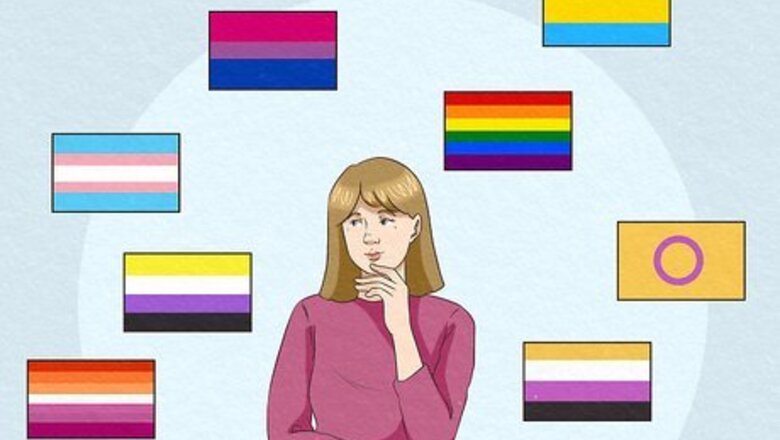
views
- Bisexuality doesn’t define who you are at your core. The label describes who you’re attracted to, not who you are as a person.
- Validate your feelings and ignore biphobic comments with positive affirmations like, “I like men and women, and there’s nothing wrong with that.”
- Seek support from others within the LGBTQ+ community by joining bi-inclusive support groups or attending LGBTQ+ events.
Embracing Your Sexuality
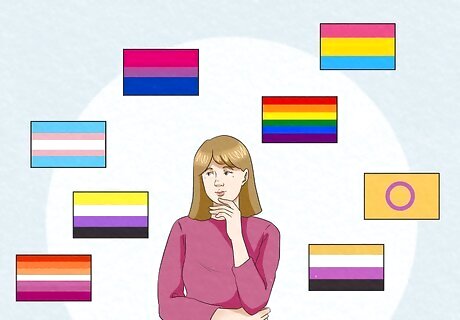
Define your sexuality on your terms. “Bisexual” typically means you’re sexually or romantically attracted to more than one gender. This could mean you’re attracted to men and women, cis men and nonbinary people, or any other combination of genders. Either way, you’re attraction to more than one gender may not be evenly weighted. You might feel a stronger attraction to one over the other, and that’s perfectly okay! There are varying degrees of bisexuality, so define the label as it best fits you. Sexuality is fluid and difficult to define. It's okay if the word “bisexual” means something different to you than others. You may be interested in both men and women sexually, but only men romantically. You may have always had sexual feelings for men and women or have developed sexual feelings for a particular gender later in life. There’s no right or wrong way to be bisexual. While some insist that 50/50 makes someone bisexual, this view isn’t universal and there aren't any rules. Pay attention to yourself and your own feelings. It's okay if your definition of bisexuality differs slightly from another person's. Everyone is different. Not sure if you’re bisexual? Take our “Am I Bisexual?” quiz to learn more about your sexual orientation.
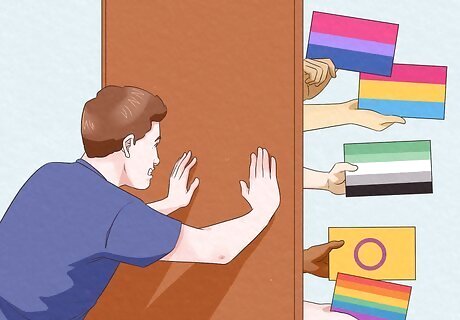
Don't compromise your sexuality for others. Unfortunately, bisexuality isn’t as commonly accepted as other labels within the LGBTQ+ community—there’s a bit of a stigma. Some people insist that bisexual individuals must “pick a side” to be valid, but this isn’t the case. Push aside criticisms that your attraction to more than one gender is indecisive or greedy—follow your heart! You don’t need to change yourself or your feelings to be accepted. You don't have to choose between one gender over another just because someone doesn’t understand bisexuality. You know yourself better than anyone else, so let the haters hate! Try countering disbelievers by saying, “I'm bisexual and attracted to both genders. I don't need to pick a side. It's actually not really possible for me to do that. I like who I like, and I can’t change that.” Keep in mind that it’s not your job to make people like you. If someone can’t accept your relationships, they may not deserve you as a friend. True friends and allies will support you without question.
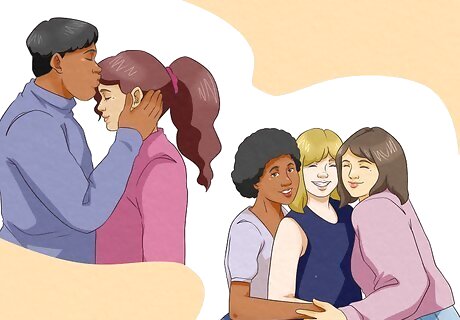
Accept that there’s no right way to be bisexual. Many people feel they should act a certain way if they identify as bisexual. You may, for example, feel you should be extra committed to monogamy because of stereotypes about bisexual people being prone to infidelity. Remind yourself that your sexuality is only one component of who you are—every aspect of your behavior is unrelated to your sexuality. There’s no right way to be bisexual. You can like whoever you want, and once you can accept that, you can accept your sexual orientation. Pursue whatever types of relationships you want that will make you happy. If you want a monogamous relationship, be in a monogamous relationship. If you want an open relationship, be in an open relationship. You do not have to follow any rules regarding relationships or dating simply because you are bisexual—don’t be afraid to break the stigma. Keep in mind that labels aren’t for everyone. If you identify with bisexuality but don’t want to label yourself as such, that’s totally cool! Do what’s best for you.
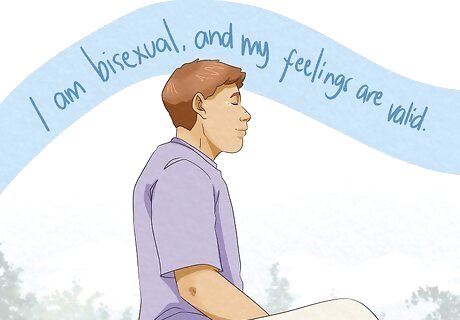
Recite a personal mantra to remind yourself that your feelings are valid. Because of the stigma surrounding bisexuality, it may be hard to accept yourself completely, especially when you have others invalidating your emotions. Positive affirmations, however, can help you feel more self-assured. Push these criticisms aside and create a mantra you can recite when you feel down, such as: “I am attracted to more than one gender, and there is nothing wrong with that.” “I am bisexual, and my feelings are valid.” “My sexuality is unique to me, and I don’t have to explain myself.”
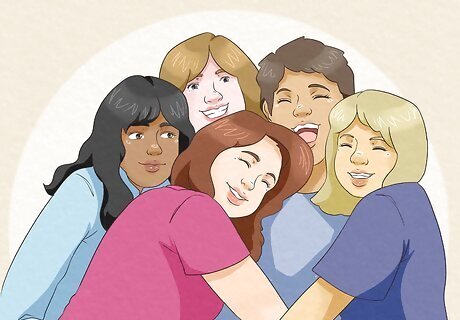
Know that you’re not alone in how you feel. Despite the stigma, bisexuality makes up a large portion of the LGBTQ+ community. Whenever you feel ready, coming out as bisexual can help you connect with other people like you who share similar experiences and feelings. When you feel lost, remind yourself that the “B” in LGBTQ+ stands for “bisexual.” The label is so abundant that it’s a part of the community’s acronym—you’re not alone! Take a moment to search “bisexual celebrities” online. You may be surprised by how many of your favorite stars identify similarly to you.
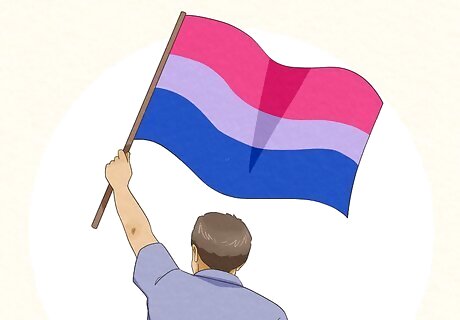
Work on liking yourself the way you are. You have a right to feel good about yourself. After all, you’re fabulous inside and out, regardless of your sexual orientation! We know accepting yourself for who you are may be difficult at times, but building your self-esteem and believing in yourself can help you be more confident and accept your identity. Seek out bi-positive people to talk to. Talk about your sexuality with supportive friends and family members. If there’s an LGBTQ+ resource center in your community, try seeing if they have bisexual discussion groups. Keep in mind that your sexuality doesn’t define your sense of self, self-esteem, or overall happiness. While it can help you understand yourself and live a fulfilling life, it doesn’t determine who you are.
Seeking Support from Others
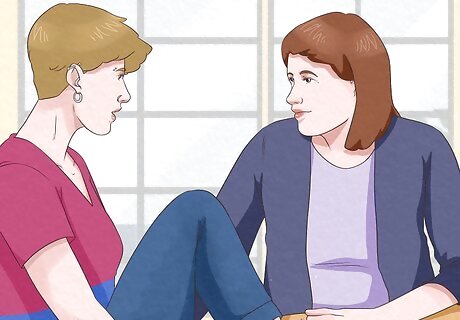
Open up about being bisexual with trusted loved ones. Don’t feel pressured to talk about your sexuality with anyone; however, know that it can be a positive experience. You don’t need to label yourself if you don’t want to, but many find solace in labels as they help them find a supportive community. Try opening up to one trusted loved one about your sexuality. Then, when and if you feel comfortable, try telling more friends and family members. Be direct when talking about your sexuality and explain what bisexuality means in your own terms. Try saying something like, “I just wanted you to know I'm bisexual. I’ve dated men and women. A lot of people assume I'm straight, but I’m not.” Open the conversation to questions if you’re comfortable, like, “If I mention I’m going on a date, I don't want you to assume it’s with a particular gender. It's okay to ask me who I was on a date with.” Let them know who is aware of your sexual orientation to avoid any mishaps, with something like, “Just so you know, I haven't told many people about this yet. Can we keep this between us for now?”
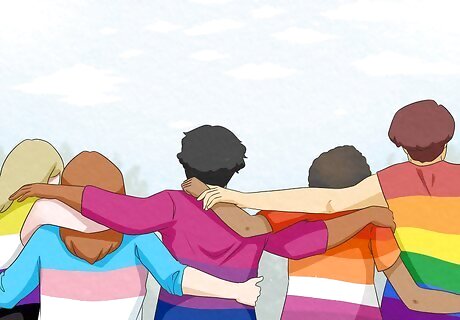
Embrace your place in the LGBTQ+ community. Many bisexual people may feel like they don't have a place within the LGBTQ+ community, but that isn’t the case! The “B” stands for “bisexual,” no matter how you define it! Go to Pride and LGBTQ+ events and support your sexual orientation if you feel like doing so. Not only is this a great way to accept yourself, but it can also help you find others who support you unconditionally. Remember, who you date doesn’t define your sexuality. If you're in a relationship with someone of a different sex, you’re still bisexual.
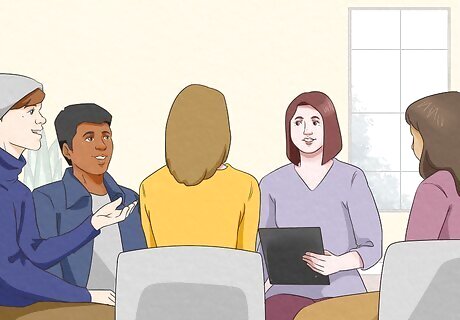
Attend LGBTQ+ or bisexual support groups. Meeting more bisexual people or others within the LGBTQ+ community can help you feel more accepted. Not only can they offer you advice, but they can also provide support in times of need. Talk to a therapist about bi-inclusive support groups in your area, look for support groups online, or go to conferences that center around bisexuality issues. Reaching out to other bisexual people can help you accept your identity. For 24/7 support, try calling support lines such as The Trevor Project (866.488.7386) or The LGBT National Hotline (888.688.5428).












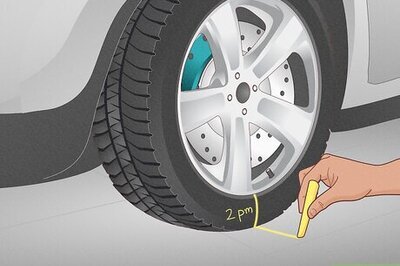


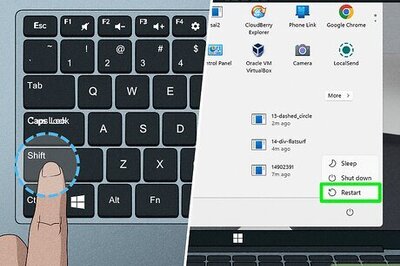

Comments
0 comment